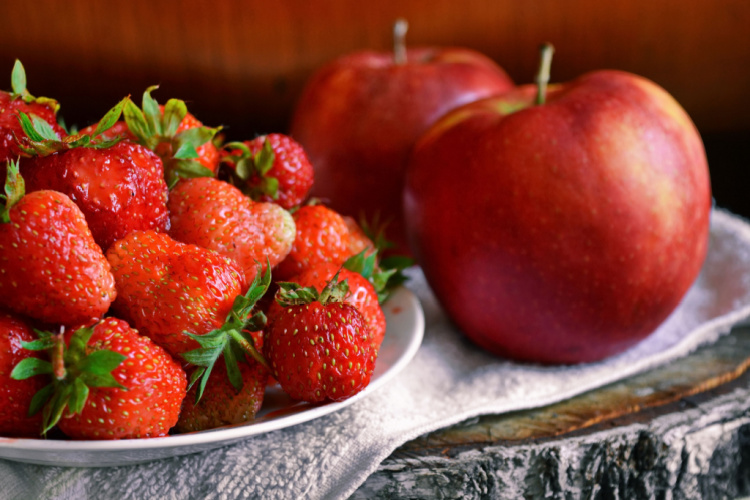How Fisetin Can Protect Your Brain And Slow Down Aging
If you consume strawberries, onions, persimmons, and apples, you are unknowingly reaping the benefits of a powerful chemical compound called fisetin. Scientists have researched this antioxidant and have discovered its anti-inflammatory properties. But it turns out that fisetin possesses far more benefits.
Let’s have a closer look at fisetin, how it works, the benefits, and how to best incorporate it into your diet.

The Benefits
– Could improve depression symptoms
– Can fend against Alzheimer’s disease and stroke
– Offers protection against inflammation and stress
– Slows aging
– Improves memory and brain health
– Has anti-cancer capabilities

Slow Down Aging
As you get older, your cells stop dividing. This is called senescence. When this happens, cells can build up in your body and cause inflammation which can impair your cellular function and up your risk of age-related illness.
Researchers are in search of senolytics, or chemicals that attack damaged cells to prevent or even reverse aging.
Fisetin was found to be a very powerful senolytic, according to new research. Some groups of mice were fed either fisetin-rich foods or a normal diet so scientists could monitor them for signs of aging. The group of mice that ate the fisetin-rich foods, saw an increased lifespan of about 10% and had better functioning bodies even as they got older.
A longevity increase of 10% is quite substantial. If you can imagine yourself living to be 100 years old, you could live to 110. There are clinical trials that are studying just how effective fisetin could be at slowing down aging in humans. Meanwhile, it’s probably not a bad idea to incorporate fisetin-rich foods into your diet or even a supplement to start reaping its benefits. While more research is needed, some studies have shown that a 50mg to 150mg daily dose could have some advantages.

Protect Against Inflammation And Stress
Fisetin can provide your cells protection from damage related to stress so they can function better. Fisetin can disable many inflammatory compounds and help regulate inflammatory pathways in the body. It can also help your body produce more glutathione, which is the most potent anti-inflammatory component in your body.
So, fisetin can help your body combat existing inflammation and prevent it in the future. The less inflammation is present in your body, the more energy is produced by your cells, helping you to feel and look better, and have a quicker recovery.

Fight Cancer
There are a few studies that have found fisetin to be effective at preventing cancer cells from spreading and multiplying. And apparently, it might be most effective at combating breast cancer cells.
Fisetin can be found in a number of different foods.
– Cucumbers and onions. Both of these foods have a decent amount of fisetin.
– Persimmons and grapes. Because both of these fruits are fairly high in sugar, you might want to eat these in moderation.
– Strawberries. Strawberries are rich in fisetin and low in sugar.
Fisetin is a polyphenol; an antioxidant with interesting benefits. There are many kinds of polyphenols, so it’s important to incorporate as many of these as you can into your diet. Green tea, coffee, chocolate, and blueberries all contain them as well.

The Rundown
Many studies suggest fisetin could prove to be beneficial for fighting inflammation and slowing down aging. It can also help fend off other severe illnesses like stroke and certain cancers. This powerful antioxidant can be found in lots of delicious fruits and vegetables, so getting your daily dose can be easy. Not only could you be providing your body with an important antioxidant, but you might also feel and look better as a result.
